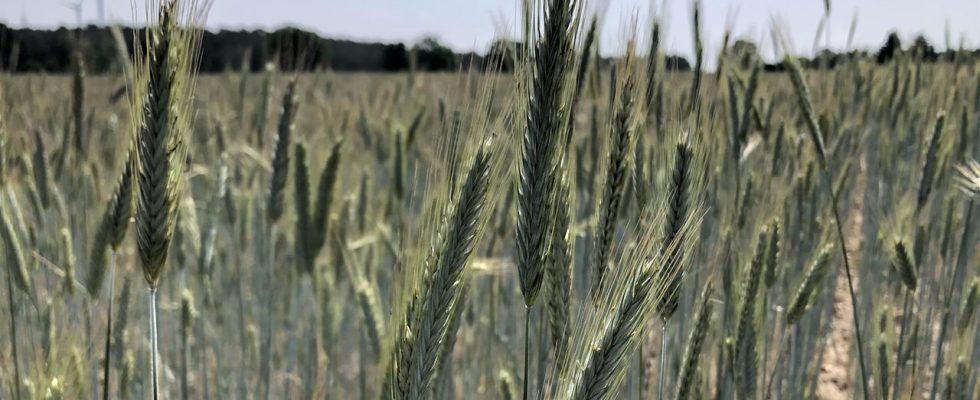background
The EU Commission wants to relax the rules for the use of genetic engineering in agriculture. This meets with resistance, especially among organic farmers. They fear for their good reputation.
“When it comes to green genetic engineering, everyone acts as if the world could be saved with it. It’s still too early to assess the risks – and not just for the consumer.” No, Klaus Borngässer does not believe in the EU Commission’s proposal to make certain genetic manipulation procedures no longer subject to declaration. The Bioland farmer from Nierstein am Rhein grows potatoes, rye, wheat and spelt; However, alfalfa, oats, barley and peas also grow on his fields as fodder for his cattle.
Genetically modified plants are taboo in organic farming, but the planned new regulation spoils the farmer’s mood. “What do I want to do if the neighbor has GM crops in the field and the wind blows the pollen over to me during pollination? Can I sow my own grains next year or do I have to buy certified organic seeds?”
With the “gene scissors” the DNA is changed
Specifically, it is about new breeds that are not the result of crossing and selection, as is conventional, but in which this process is simulated in the laboratory using genetic engineering. For this purpose, no foreign genes are incorporated, but the plant’s own DNA is modified using “gene scissors”, individual genes are removed or exchanged. The chromosomes created in this way and their properties are naturally passed on to the next generation. The plants are later indistinguishable from conventionally cultivated ones.
Researchers have long been demanding that this so-called genome editing should not be legally equated with conventional genetic engineering. New breeds took so much less time than before, one hopes for more yield and more environmental protection if the plants need less fertilizer and pesticides thanks to their properties. According to their will – and according to the proposal of the EU Commission – cultivation could be made much easier, and the products would no longer have to be labeled as genetically modified.
Sensitive topic, sensitive customers
“At some point, the consumer no longer sees through at all, even if he is reasonably informed,” Thorsten Neubauer also points out. He is the managing director of “Kornbauern”, a producer and marketing company for Bioland products, especially grain. This includes 150 organic farms in Rhineland-Palatinate and neighboring regions, and mills and bakeries, among others, are supplied. “Our customers are very sensitive. A large bakery, for example, does not buy hybrid rye, i.e. grain that only grows for one generation and is not suitable as seed, was only bred for effectiveness.”
The contamination of organic fields by adjacent areas with genome-edited plants: a problem that could only be solved with enormous additional effort, he believes. “More checks, more documentation to prove we’re non-GMO – it all makes business difficult.”
It is not just organic producers and food producers who have a hard time feeling about the possibility of equality – on the field and ultimately on the label. Even conventional farmers and companies that advertise “free of genetic engineering” could soon no longer be sure of this, so the fear goes, if “green genetic engineering” no longer has to be labelled.
Olaf Bandt, Chairman of the Federation for the Environment and Nature Conservation Germany (BUND), also finds clear words. The EU Commission’s draft is “disastrous” for the more than 80 percent of consumers who do not want any genetic engineering on their plate: “It is disastrous for the European precautionary principle and for European agriculture, because the designation ‘without genetic engineering’ and independence from patented seeds has been a competitive advantage for them.”
“Genetic engineering through the back door”
Organic farmer Borngässer will soon be delivering grain to the “Grain Farmers”, where he is a member. That will continue to work, he is certain of that – and that he will also stick to the organic concept. “No synthetic fertilizer, no herbicides.” His wish is for politicians to do more for organic farming. “Otherwise we’ll end up getting genetic engineering through the back door, we don’t want that. And consumers don’t want that either.”
That’s why he signed a petition against the deregulation of new genetic engineering. Does that help? Will the precautionary principle – only approve new varieties if negative effects on the environment and nature can be ruled out – continue to apply? Borngässer has his doubts.

